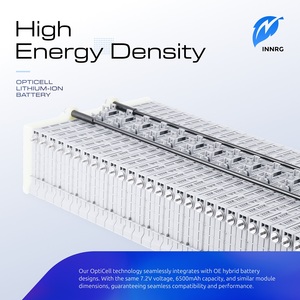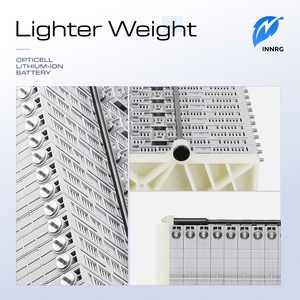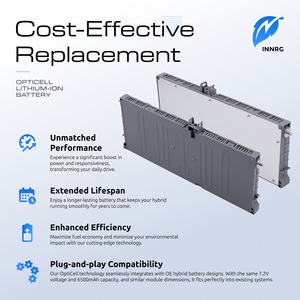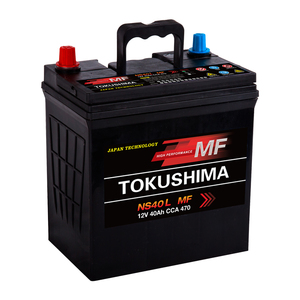(2117 products available)











































































































































































































The Prius battery replace comes in different types, each designed to meet specific power needs. Here are the common types of Prius battery replacements:
Nickel Metal Hydride Batteries
The Toyota Prius initially utilized nickel metal hydride batteries. They are ideal for hybrid vehicles since they charge and discharge swiftly. They are also highly durable and can last through numerous charge cycles. Nevertheless, NHW batteries have a lower energy density than lithium batteries. They also require proper management to avoid overheating and degradation.
Lithium-Ion Batteries
Some newer Prius models use lithium-ion batteries. They have a higher energy density, meaning they can store more power in a smaller space. This feature makes it easy to increase fuel efficiency and power output. Moreover, lithium-ion batteries have a low self-discharge rate and are suitable for fast charging. However, they are expensive to manufacture and require frequent maintenance. They also have a shorter lifespan than nickel-metal hydride batteries.
Solid-State Batteries
Solid-state batteries are still being researched for use in hybrid vehicles like the Prius. The batteries promise a higher energy density, improved safety, and longer lifespan. They also have a fast charging rate and low self-discharge. However, solid-state batteries are still in development and are not yet commercially viable.
Aftermarket hybrid batteries
Aftermarket hybrid batteries are designed by third-party manufacturers to suit specific Prius models. They come in different chemistries, including nickel-metal hydride and lithium-ion. Aftermarket batteries are usually cheaper than OEM batteries. They also have a shorter warranty period and lifespan, depending on the manufacturer.
Reconditioned and refurbished batteries
Reconditioned and refurbished batteries are used Prius batteries that have undergone cleaning, testing, and repair. The batteries provide a cost-effective and environmentally friendly alternative to new batteries. They also have a lower carbon footprint than other battery replacement options. However, refurbished batteries have a shorter lifespan and may not perform as well as new batteries.
Voltage and amperage
Prius batteries have different voltage and amperage ratings that affect their performance. The battery pack has a voltage rating of 200–500V. The amperage rating is between 20 and 100A.
Capacity
The capacity of a Prius battery indicates how much energy it can store. The capacity is between 20 and 60 kWh. A higher capacity battery can drive longer distances before needing a charge.
Cycle life
Cycle life is the number of times a battery can be charged and discharged before it loses capacity. The cycle life of a Prius battery is between 500 and 1500 cycles. After that, the battery capacity will decrease, and it won't hold as much energy.
Energy density
Energy density is how much energy is stored in a given amount of space. A higher energy density means a battery can provide more power while taking up less room. The energy density of a Prius battery is 100–300 Wh/kg.
Temperature range
Temperature is an important specification when it comes to Prius batteries. Extreme heat or cold can damage them. Prius batteries have an operating temperature range of 0–40 °C (32–104 °F). This range keeps the batteries functioning well.
Maintaining a Prius battery is important for its performance and lifespan. Here are some tips:
When reselling Prius batteries, there are several factors to consider. Different customers will have varying needs depending on their vehicle model and existing battery condition. It’s worth noting that batteries from different manufacturers have distinct features. Here are some of the key factors to consider;
Replacing a Prius battery can be a complex task, but with the right tools, materials, and knowledge, it's possible to do it by yourself.
After replacing the battery, it is essential to reset the battery management system (BMS) to ensure optimal battery performance and longevity. To reset the BMS, follow these steps:
Check for any warning lights or error messages on the dashboard related to the battery after replacing it. If there are any issues, use a scan tool to read the error codes and address them accordingly. Ensure all connectors, cables, and components are properly reinstalled and functioning.
Q1: How long does a Prius battery last?
A1: Generally, a new Prius battery can last between 10 and 20 years. However, the battery life can be reduced by external factors such as temperature, driving habits, and proper maintenance.
Q2: How do I know if my Prius battery needs replacement?
A2: Some of the common battery replacement signs include: Battery charge drops quickly, the car won't start, error messages on the dashboard, and weak acceleration.
Q3: Can I replace the Prius battery myself?
A3: Yes! With proper knowledge, skills, and experience, anyone can replace the Prius battery. However, the process can be complicated and dangerous if not handled correctly. Therefore, it's advisable to seek a professional mechanic's help.
Q4: How much does it cost to replace a Prius battery?
A4: The cost of replacing a Prius battery varies depending on the battery type and model. However, the replacement cost can range from $2,000 to $4,000.